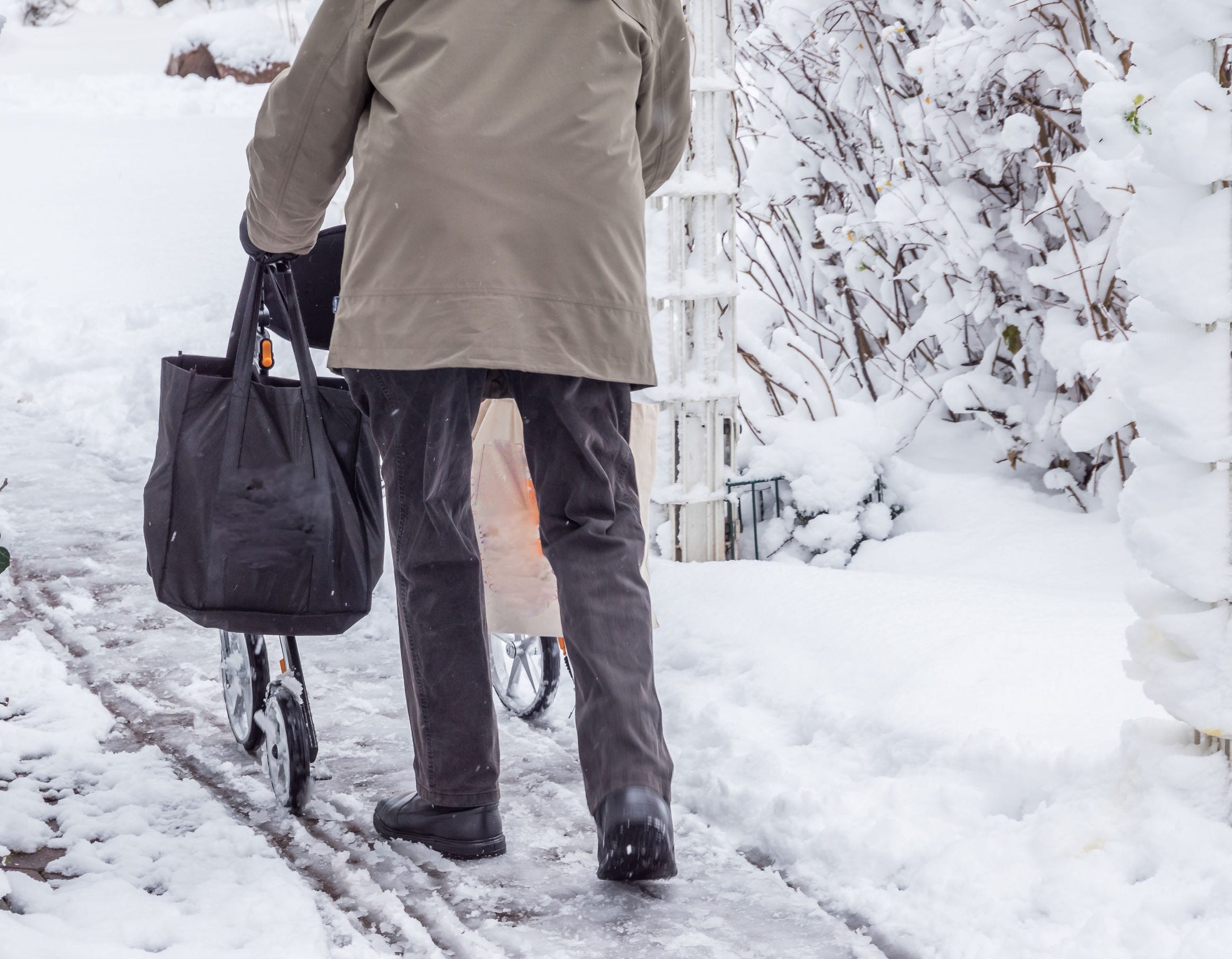“Who’s Responsible for My MN Slip and Fall?” and Other Questions
Minnesotans are accustomed to their fair share of slippery conditions. That doesn’t mean that injuries from slip and fall accidents are ever something you should simply shrug off.
There are laws surrounding slip and falls, and the damages you can recover, that are important to understand in case it ever happens to you.
Learn more about some of the most common questions victims of slip and fall accidents in Minnesota ask.
What Should You Do Right After a Minnesota Slip and Fall?
Your immediate actions following a slip and fall accident largely depend on how injured you are. If you feel your injuries are relatively minor, seek medical care at an urgent care clinic or from your doctor. If they are more severe, then call 911 for help or have someone do it for you.
Sometimes the full extent of injuries does not present itself right away. So in either case, it is imperative that you get a professional medical exam in case you file a claim at a later date.
It’s also important that you let the residence or business owner know of the accident. If possible, you should examine the scene to determine what caused your fall and take photos if you can to document it.
Also, the contact information and names of any witnesses can come in handy if you find down the road you want to pursue damages for your slip and fall case.
If you need to be taken in an ambulance, then it’s likely police will be notified and gather information at the scene for you. Make sure to get a copy of any police report.
How Is Fault Determined in Minnesota?
In a slip and fall case, the first thing that must be determined is who is at fault for the accident. Minnesota is what is referred to as a comparative fault state.
That means that the court, or insurance company, must first determine where the fault lies for the accident before anything can proceed.
There are several factors that go into determining who is at fault for a slip and fall. The conditions at the time of the accident are taken into account as well as what you were doing at the time of the accident.
The answers to these kinds of questions allow a determination for the amount of fault each party has – and ultimately the amount of compensation you can receive.
If it is determined you have no fault in the accident, then the question is whether the property owner should have been reasonably aware of the dangerous conditions.
Property owners are expected to address dangerous conditions in a timely way to ensure their property is safe. If they fail to do that, then you may have a case.
You must be able to establish that the property owner had a duty of care, that they breached that duty, and that the breach is what caused your injury.
How Does MN Law Say You Can Be Compensated?

In Minnesota, a slip and fall case is treated like any other personal injury claim. You can seek compensation for lost wages, any medical bills that arise from the accident, future medical expenses, future lost wages, and pain and suffering.
The comparative fault piece comes into play when it comes to damages. If you were found to be 50 percent at fault, then you will only receive 50 percent of damages you would have been awarded if you had no fault in the accident.
You have six years to file a personal injury claim in Minnesota, but don’t delay if you feel you have a case and you need compensation for the injuries you’ve suffered.
About the Author:
Andrew T. Poole is a Minnesota native who has served in the Army for more than 18 years and is currently a JAG lawyer in the Army Reserves in addition to serving as a partner at LaCourse, Poole & Envall. He has handled thousands of criminal and family law cases over the course of his career and has a firm belief that all hardworking Minnesotans should be entitled to the best possible legal counsel. Mr. Poole boasts a 10/10 Superb rating on Avvo, is Lead Counsel rated, and has been recognized multiple times by SuperLawyers, National Trial Lawyers, and others for his work.
















